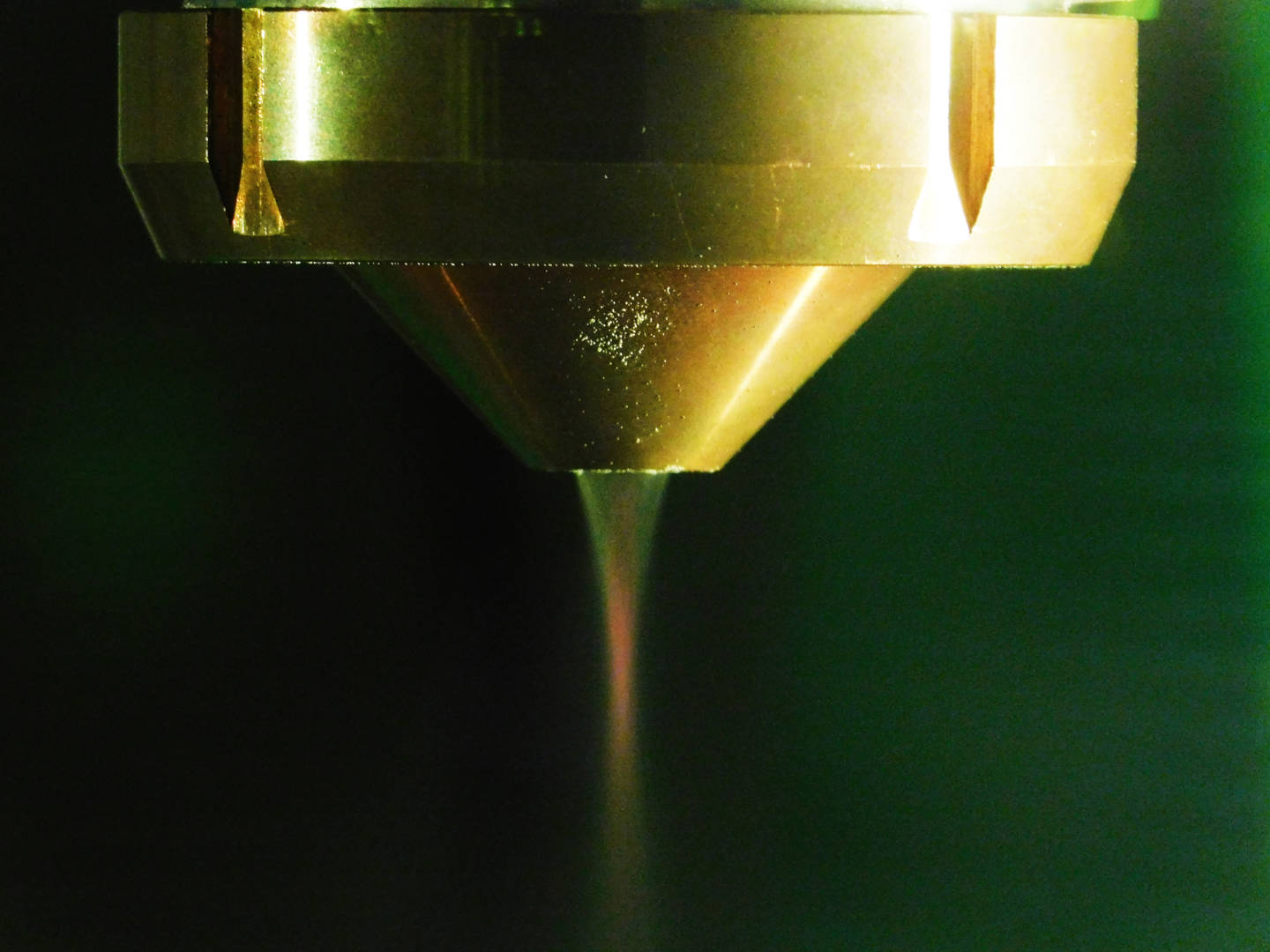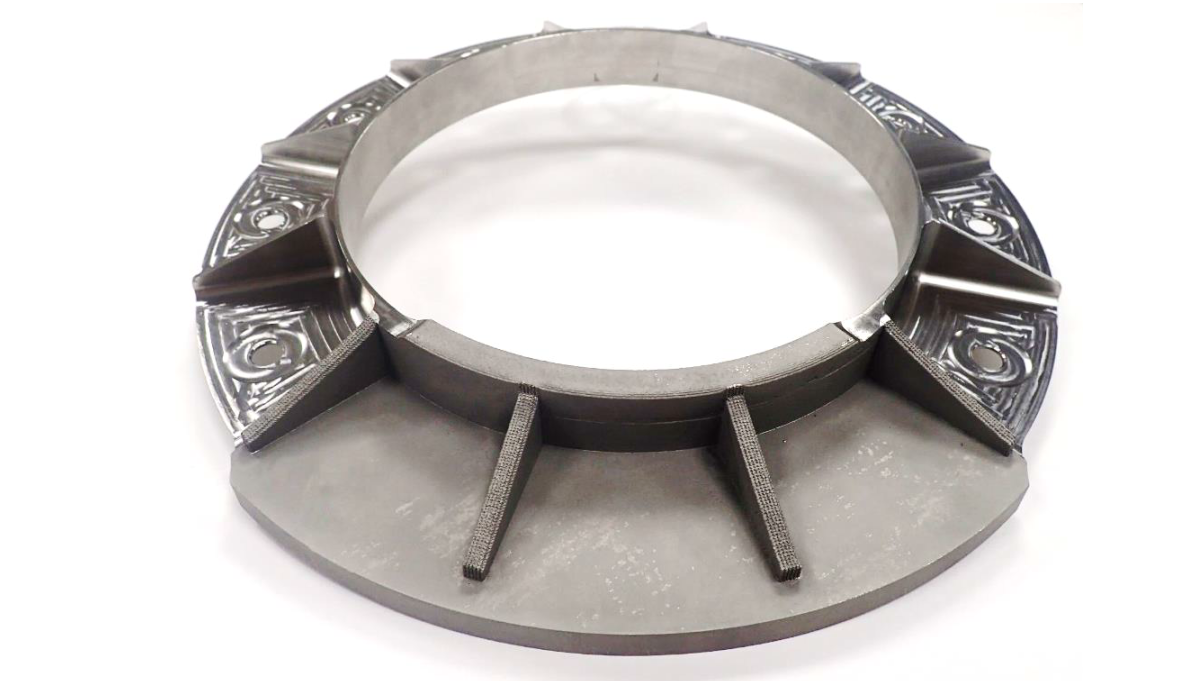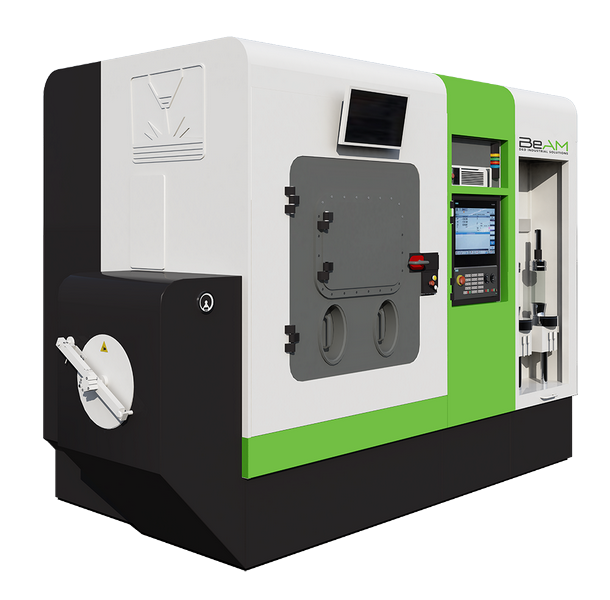PFW Aerospace, a German airplane components manufacturer, has partnered with BeAM, a Strasbourg-based 3D printer manufacturer, to industrialize aerospace parts additively manufactured using Directed Energy Deposition (DED) technology. Furthermore, the collaboration also seeks to qualify a titanium aerospace component made with DED.

A 3D printed aircraft flange
PFW supplies steel and titanium pipe systems, structural components, and fuel tanks for civilian aircraft. The aerospace company fulfills its clients request from concept design to the delivery of the final product.
In 2005, the aerospace giant Boeing hired PFW to provide metallic tubing and duct system for the Boeing 787 Dreamliner, a long-haul commercial jet. The tubing system provides fluid to the hydraulic systems which power the flight and landing gear systems. In addition to this, PFW also manufactures parts for Airbus A380 and A330 commercial airplanes.
Now, the company has partnered with BeAM to qualify a 3D printed aircraft flange, a rim to strengthen the object attached to it. The aircraft flange is partially made with DED using Ti6Al4V, a high strength-to-weight ratio titanium alloy used in the aerospace and medical industry.

BeAM’s Modulo 400 DED printer
BeAM, recently acquired by French additive manufacturing company AddUp, manufactures DED printers, which use a laser beam to melt the feed wire to build parts layer by layer. In DED, the layer size ranges between 0.25-0.5 mm, therefore, it is a precise method of 3D printing metal parts. DED is also an ideal method for repairing metallic parts and adding material to existing parts. Although DED can manufacture in plastic, titanium remains one of the most common material choices.
BeAM’s collaboration with PFW will explore the applicability of DED method to machined titanium components and welding designs.
PFW currently possesses BeAM’s Modulo 400, a portable DED printer. The Modulo 400 has a component cabinet to ensure that all the peripherals needed to operate the machine are always attached to it. The printer can be easily shipped or packed in the back of a truck for transportation and use in remote locations.
It is due to Modulo’s sealed design that PFW chose it for aerospace parts manufacturing. The Modulo allows H2O and O2 control which is an aerospace industry requirement for parts manufacturing.
For material deposition, the Modulo 400 uses a fiber laser and can be fitted with either a 10Vx or a wider 24Vx deposition nozzle. Furthermore, it is engineered with a Seimens digital CNC system, the SINUMERIK 840D, and Renishaw’s RMP40 inspection probe.
BeAM is currently at the ongoing Formnext, Hall 3.0, Stand D20.

For more news from the aerospace industry subscribe to our 3D printing newsletter. You can also follow us on social media: Facebook and Twitter.
If you are looking for jobs in 3D printing, then visit our 3D Printing Jobs.
Featured image shows the 24Vx nozzle of Modulo 400. Image via BeAM


